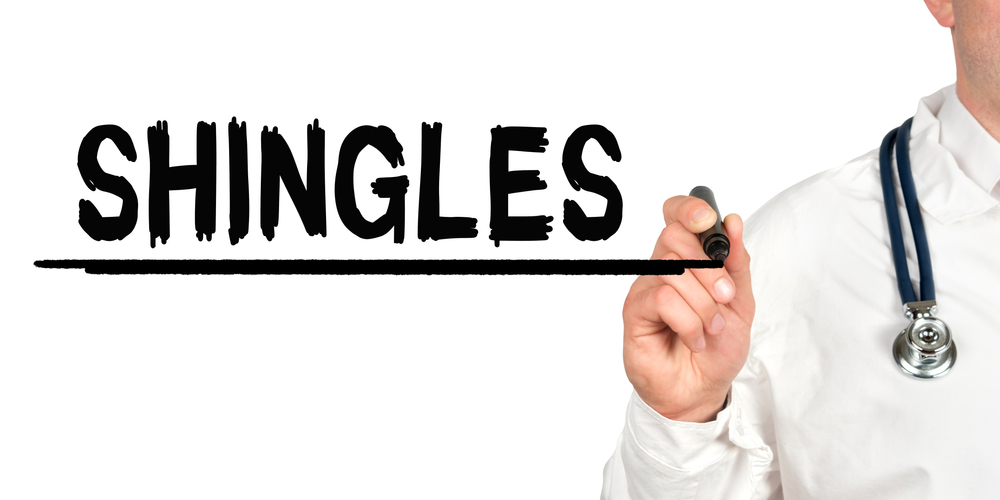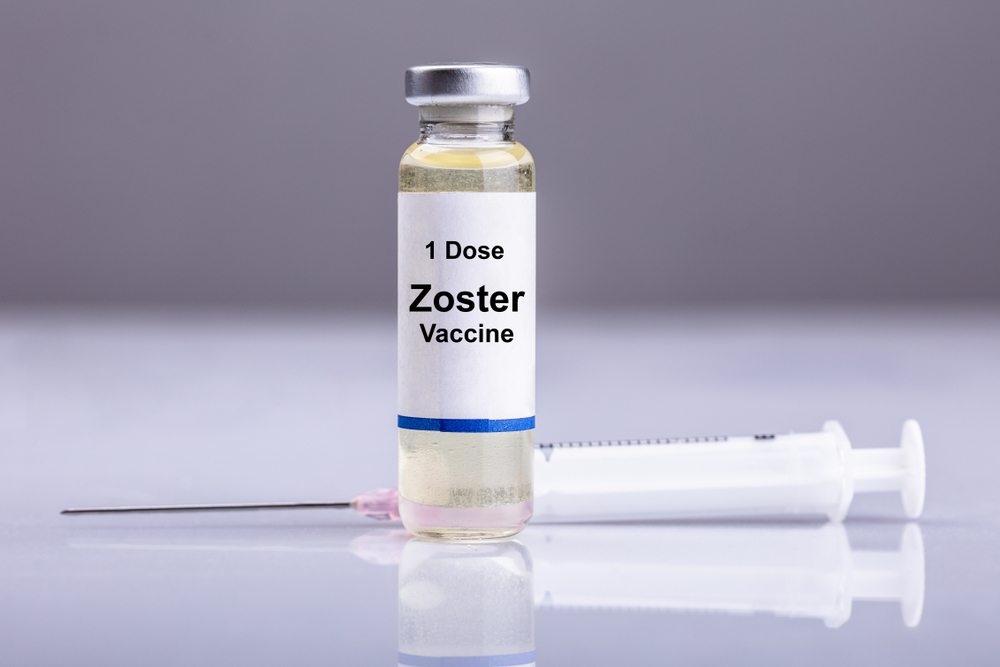Author
Reviewer
Share Article
Shingles Vaccination Keeping Pandora’s Box Closed

| Author | Reviewer |
|
Christine Palmay, MD, CCFP, FCFP |
Vivien Brown, MDCM, CCFP, FCFP, NCMP Assistant Professor, University of Toronto, Peer Voice, MDBriefcase, STA Communications; Board Member of Immunize Canada, Women’s Brain Health Toronto, ON |
Even prior to a newfound patient medical awareness regarding primary care disease prevention (thank you COVID!), the public has always had an general understanding (or fear!) of that horrible rash that rears it’s ugly head at the most inopportune time…..shingles!
There is no doubt that I have seen a vast increase in shingles cases during the pandemic, attributable to stress and lack of chronic disease management. As I often tell patients, viruses don’t care about convenience. They strike without sympathy and often during the most inconvenient times. Patients often understand that early diagnosis is important, but as health care providers we must change the discussion and promote the best treatment – early prevention.
 While patients likely are aware of the acute symptoms of a herpes zoster infection, it is imperative that we remind them that vaccination is also important to prevent:
While patients likely are aware of the acute symptoms of a herpes zoster infection, it is imperative that we remind them that vaccination is also important to prevent:
- Severe infection (such as Herpes Zoster opthalmicus or oticus)
- Severe infection leading to hospitalization
- Long-term complications (post herpetic neuralgia). Ask any patient who suffers from PHN and they will likely articulate the devastating effect on their quality of life and loss of independence.
Tell Me More
We still have 2 vaccine options available in Canada:
- Live Attenuated Zoster Vaccine (Zostavax (frozen) followed by Zostavax II (fridge stable)
- Recombinant Zoster Vaccination (Shingrix)
 Due to the increased efficacy of Shingrix, Merck announced that they will no longer be continuing production of Zostavax and supply will not longer be available once we have exhausted current stock.
Due to the increased efficacy of Shingrix, Merck announced that they will no longer be continuing production of Zostavax and supply will not longer be available once we have exhausted current stock.
I recall when Shingrix was approved in 2017 and the pomp and circumstance that followed! The vaccine proved to be more effective in older patients, could be safely administered to immunocompromised patients and had robust protection against devastating post herpetic neuralgia. We now have 8-year humoral and cellular immunity persistence data with mathematical modelling projecting ongoing protection for up to 20 years. Those are some comforting numbers!
Shingirx continues to be a 2-dose series for ALL patients (no booster suggestions yet!) with the goal to get the second shot withing 2-6 months from the first dose. Due to COVID restrictions. NACI provided guidance that we could administer the second dose 2-12 month from the initial dose. For our immunocompromised patients most at risk, Health Canada also provided guidance that the 2nd dose can be administered earlier (1 month after initial dose). This provides a bit of wiggle room to maximize immune response for patients who may be starting immunosuppressive therapy or medications….more to come about that!
So I get it, but Who?
 As per NACI, age is by far the most significant risk factor for developing shingles and as such, we are strongly recommended to vaccinate all patients at age fifty (Happy Birthday!). Having digital templates ready to go for these “milestone” visits ensures that your consult can be efficient and comprehensive. The “This is Fifty” template that I use includes discussion about all areas of preventive care, including immunizations and other screening (colorectal cancer, breast etc).
As per NACI, age is by far the most significant risk factor for developing shingles and as such, we are strongly recommended to vaccinate all patients at age fifty (Happy Birthday!). Having digital templates ready to go for these “milestone” visits ensures that your consult can be efficient and comprehensive. The “This is Fifty” template that I use includes discussion about all areas of preventive care, including immunizations and other screening (colorectal cancer, breast etc).
As of spring this year, Health Canada provided NEW guidance that extended indications for Shingrix vaccination. As per their statement, adults over 18 who are or who will be immunosuppressed due to a chronic disease and/or treatment should be offered shingles vaccination. I warn you, the language was broad and non-specific leading to many clinicians asking for clarification. Health Canada responded that they could not possibly offer recommendations for every situation and in my opinion, suggested that as clinicians we leave it up to clinical discretion. NACI has yet to provide guidance (they are busy!)…but I encourage you to read Health Canada’s statement and think broadly. Whilst the recommendations were based on specific patient populations (stem cell/renal transplant patients), there may be room for interpretation. What about our diabetic patients or our COPD patients?
This Sounds Great, but What About Coverage?
From an ethical perspective, I believe that vaccination against herpes zoster SHOULD be covered. At present we have a few funded programs for special patients as outlined in the chart below. Ontario and PEI have limited funded programs for seniors. There is also special access coverage for our First Nations and Veteran patients. For those who are not eligible for public coverage, encourage them to check their private health care coverage, including health spending accounts. Vaccines also make a wonderful gift and may even top the traditional sock present during holiday seasons!
Are you kidding me? Time is a premium these days!

We are all busy. That is a fact. Despite the catch-up, mental health burden and back peddling to address to years of reduced access to medical care, I challenge our medical community to step back and understand that preventative care is essential. As we revamp our approach into a hybrid model of care, here are some ideas:
- Templates – Incorporate premade templates into your practice as a tool to ensure that you are ticking off the boxes. They also help organize your appointments.
- Emails – Have prewritten email templates ready to send out to patients, including a summary of vaccines discussed and credible resources
- Maximize Time – Harness appointments such as influenza vaccine clinics, well baby visits, travel immunization consults to discuss other important immunizations.
- Leverage Allied Health Care Professionals – Immunizations are a team sport and I proactively encourage that a patient have a vaccine administered at a pharmacy if more convenient. Our common goal is patient care and there is strength in numbers.
- Personalize the Discussion - Cater your counseling to patient’s personal situation and/or risk factors . This shows care and has greater emotional impact than global statistics or data.
Our Time Matters
 Even with a lack of time, understand that those precious minutes we spend counseling a patient about immunization, regardless of type, matters. Many studies have shown that the single most significant factor determining whether a person receives a vaccine is a recommendation from a trusted health care professional. Let us cherish this gift and celebrate the invaluable role we can play in immunization uptake.
Even with a lack of time, understand that those precious minutes we spend counseling a patient about immunization, regardless of type, matters. Many studies have shown that the single most significant factor determining whether a person receives a vaccine is a recommendation from a trusted health care professional. Let us cherish this gift and celebrate the invaluable role we can play in immunization uptake.
Click the links below to read our other CCRN blogs:
![]() Why should Meningitis B vaccine be a priority in primary care?
Why should Meningitis B vaccine be a priority in primary care?
![]() Why are we still talking about hypertension?
Why are we still talking about hypertension?
The development of this blog was overseen by the Canadian Collaborative Research Network and was supported through an educational grant from GlaxoSmithKline.
copyright © 2025 CCRN
Any views expressed above are the author's own and do not necessarily reflect the views of CCRN.

